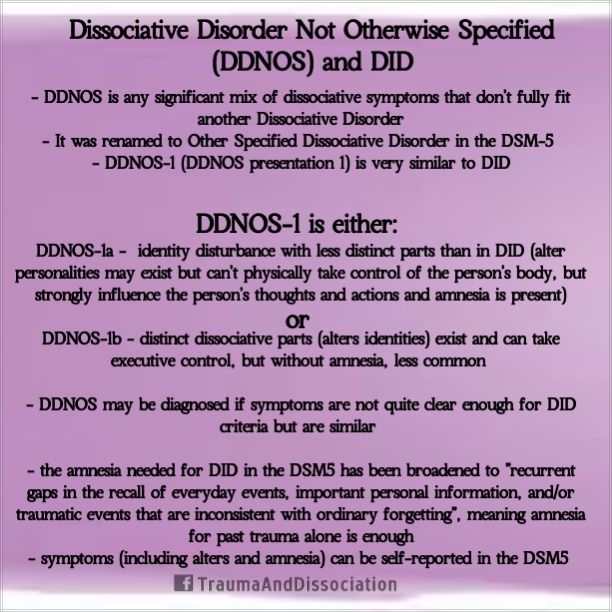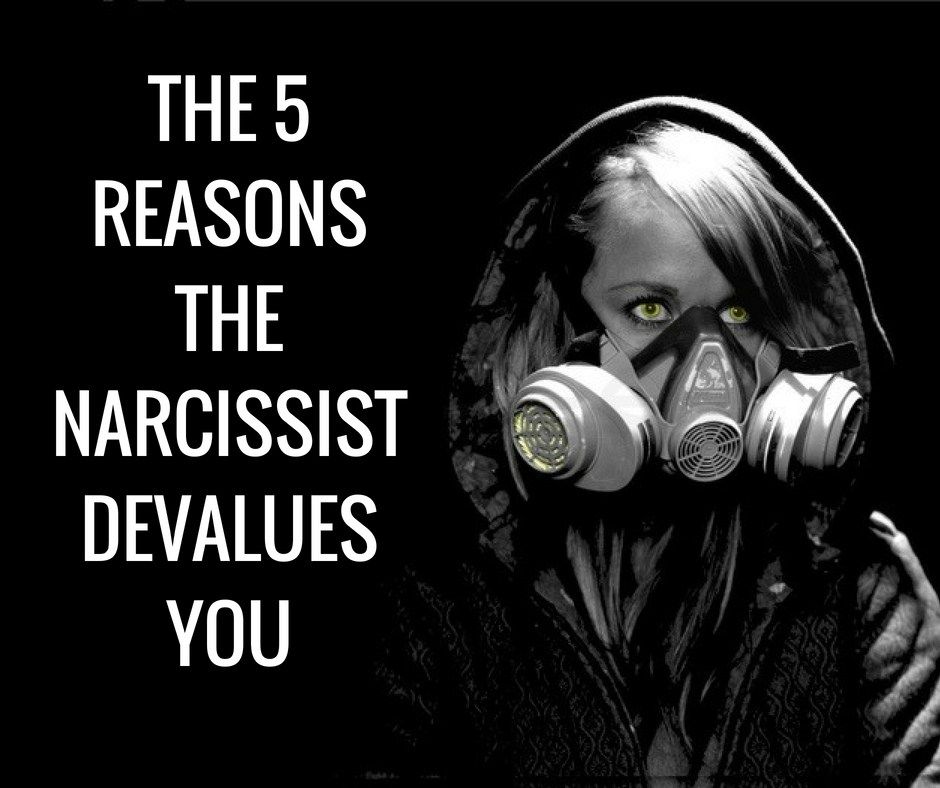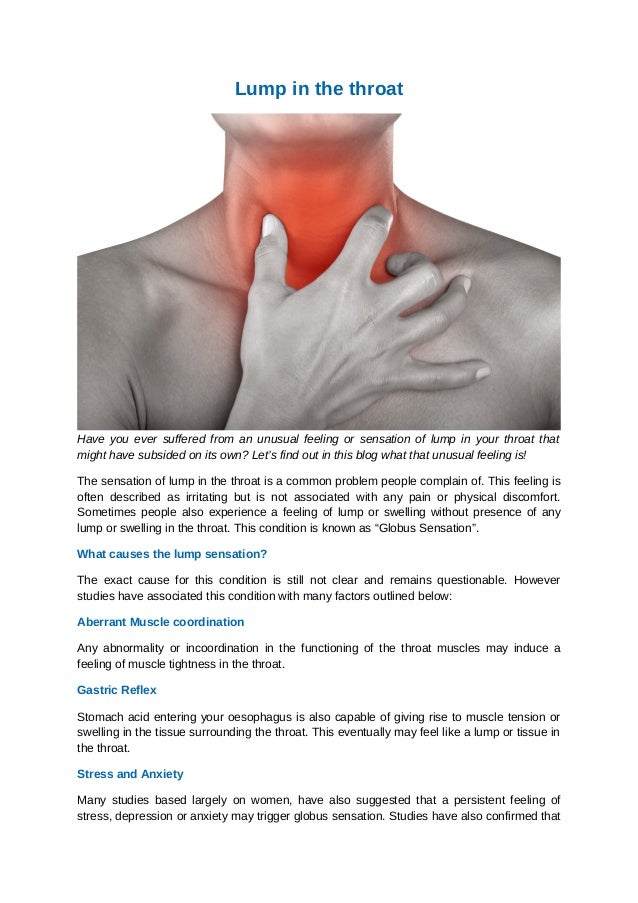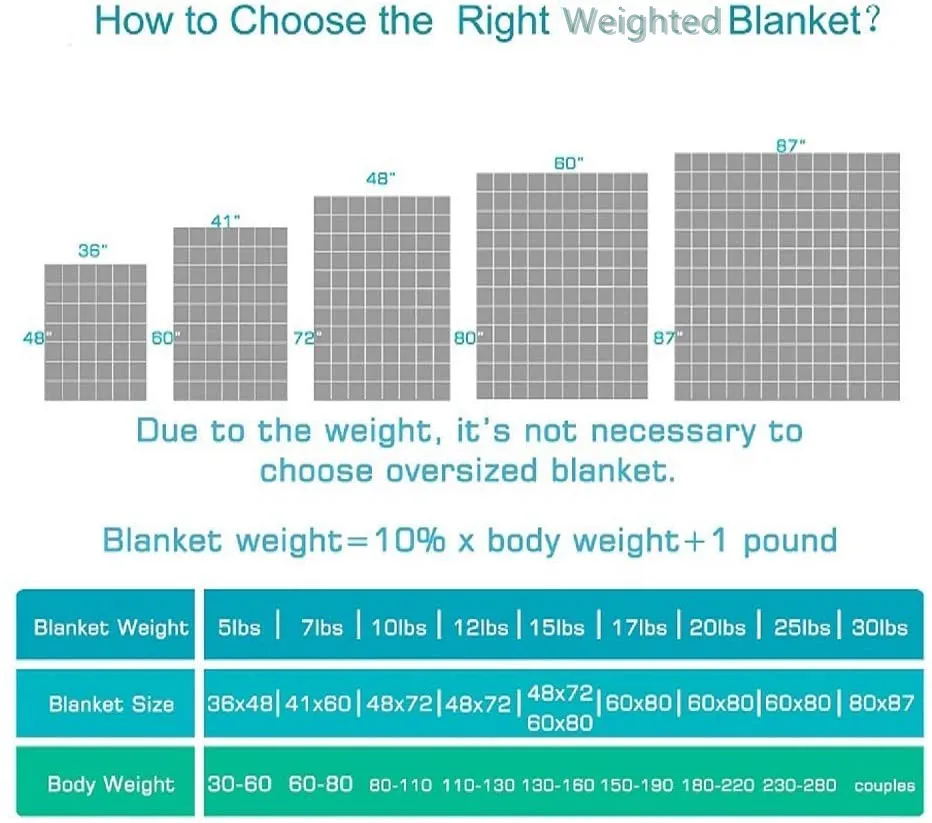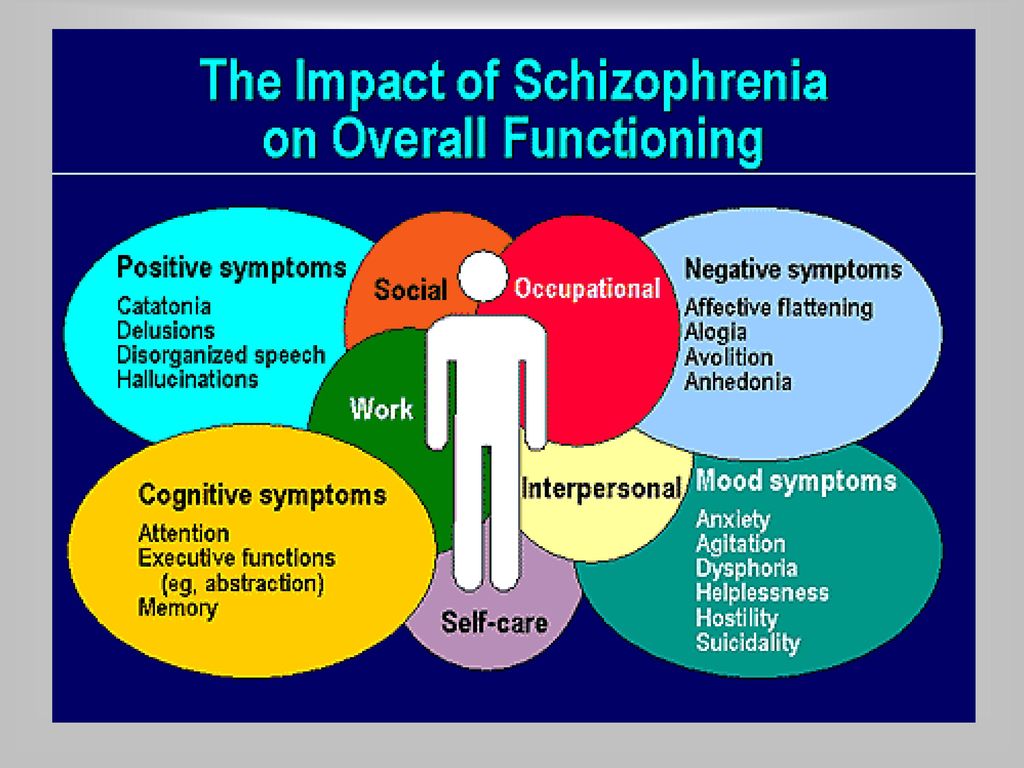Examples of negative core beliefs
How to identify your negative core beliefs
In this article, I discuss how to identify thought patterns called negative core beliefs which often play a role in many psychological issues.
Estimated reading time: 3 minutes.
In my work as a Calgary psychologist and a Cochrane psychologist, much of my focus in helping clients is on identifying and changing negative thought patterns which contribute to their emotional distress. This ‘cognitive restructuring’ work typically entails examining clients’ negative thoughts in response to particular situations and events in their everyday lives.
However, on some occasions I help my clients address negative thinking patterns which are rooted in their pasts. These are long-standing negative views about themselves, other people in their lives or their world. These negative views usually originate from clients’ difficult experiences and predispose them to think negatively about themselves, other people or their world in the present.
Negative core beliefs, as these thinking patterns are called, are many times the reason for a person’s negative thinking tendencies in the present and play a major role in causing and maintaining various psychological issues including depression, the anxiety disorders, substance use disorders and eating disorders. In the following sections I will provide examples of negative core beliefs, point out their key defining features, then discuss how you can determine whether particular negative core beliefs are affecting your thinking and emotional well-being.
Examples of negative core beliefs
Common negative core beliefs about oneself include, “I am worthless”, “I am inadequate” and “I am a failure”. Common negative core beliefs about other people include, “People will hurt me”, “People are malicious” and “People cannot be trusted”. Common negative core beliefs about the world include, “The world is dangerous”, “The world is unfair” and “The world is scary”.
Features of negative core beliefs
Note from the examples the key features of negative core beliefs. One is that that they are very absolutistic or all-or-nothing in nature. That is, they do not vary based on specific situations.
One is that that they are very absolutistic or all-or-nothing in nature. That is, they do not vary based on specific situations.
However, even though core beliefs are not situation-specific, they will typically point a person’s thinking in a negative direction consistent with them in specific situations. For example, a person will be prone to having thoughts of being worthless in relationships, at work and in other situations if they have the core belief, “I am worthless”. Someone will likely think that people cannot be trusted in various situations in which they interact with people if they have the core belief, “People cannot be trusted”. Similarly, they will be prone to thinking that the world is unfair in many situations if their core belief is that the world is unfair.
Negative core beliefs are typically self-sustaining in that the individual is biased in looking for information in specific situations which supports their core beliefs and disregards information which is inconsistent with them.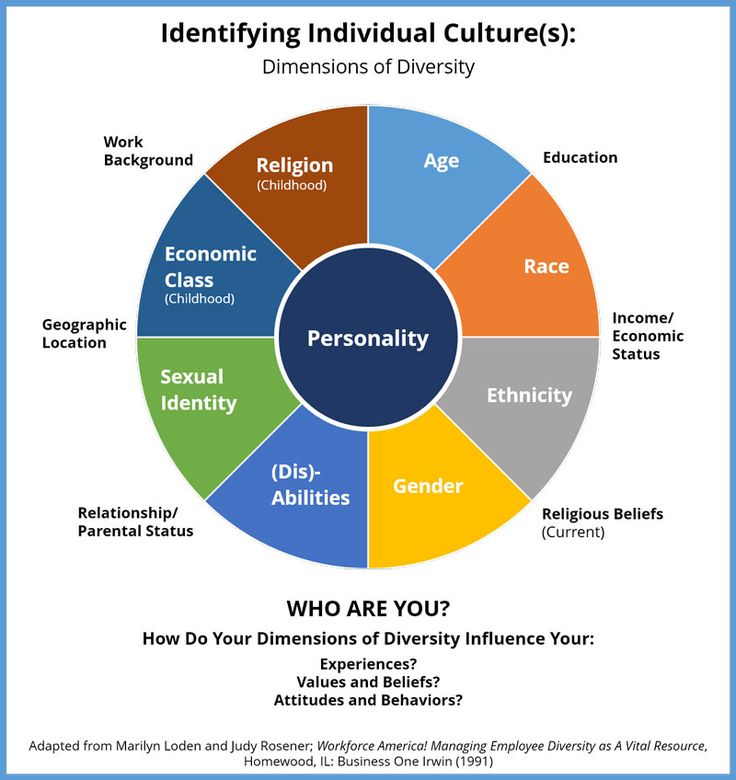 For example, a person who has the core belief that they are inadequate will tend to focus on information in a situation which supports this belief, interpret ambiguous information in a manner which allows this core belief to be supported and overlook information which might contradict the belief that they are inadequate.
For example, a person who has the core belief that they are inadequate will tend to focus on information in a situation which supports this belief, interpret ambiguous information in a manner which allows this core belief to be supported and overlook information which might contradict the belief that they are inadequate.
How to identify your negative core beliefs
The best way to determine if you have negative core beliefs is to notice themes in your thinking. That is, if in many different situations you tend to think in an absolutistic negative way about yourself, other people or the world, it suggests that a core belief may be operating.
For example, if at work, in relationships and in other domains you commonly notice having beliefs in response to events such as “I am a failure”, “People are untrustworthy” or “The world is unfair” this would suggest that core beliefs of those types may be affecting your thoughts and emotions. As a specialist in cognitive behavioural therapy (CBT), I help my clients to discover their negative core beliefs by looking for themes in the thoughts which enter their minds in situations by writing down their thoughts in a commonly used CBT tool called a thought record.
Given that core beliefs are associated with strong emotion, another sign that core beliefs may be present is your experiencing strong emotional reactions in situations, particularly if the reaction appears out of proportion to events.
Finally, another sign that core beliefs may be present is your having difficulty in accepting or believing positive information or evidence about yourself, others or the world. The reason is that, as I mentioned, having a deeply rooted negative core belief makes it very difficult to accept information which contradicts it.
Getting some help in identifying your negative core beliefs
Working on identifying possible negative core beliefs can be a challenge both in terms of accurately pinpointing your negative core beliefs and in managing the strong emotional reactions associated with these beliefs. As a result, you may find it beneficial to work with a psychologist who specializes in CBT as you embark on this journey.
In my next article, I will discuss techniques you can use to change your negative core beliefs once you have identified them.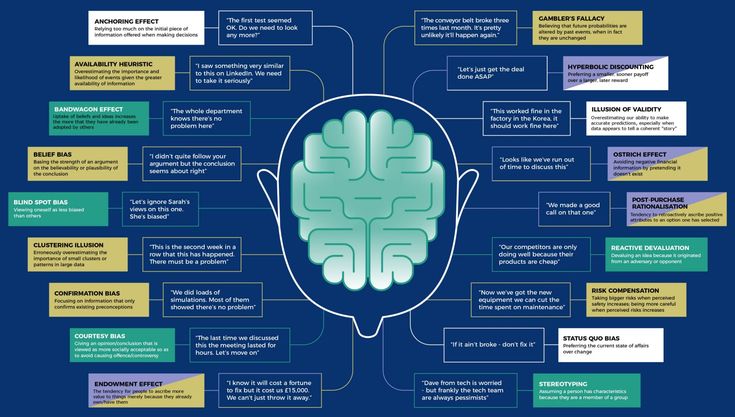
May you identify your negative core beliefs as the first step toward changing them,
Dr. Pat
Feeling Challenged? Work with a psychologist who knows how to overcome challenges… Depression, anxiety, stress & other psychological issues may seem as daunting as completing a marathon. My approach to “Plan, Take Action & Track Progress”, has helped 100s of clients and is the same approach I used to succeed in the Boston Marathon & Ironman Canada.
Negative Core Beliefs List (+8 Tips On How To Challenge Them)
This post contains negative core beliefs list and effective tips to help you challenges those beliefs.
In 2005, the National Science Foundation published an article summarizing research on human thoughts. It was found that the average person has about 12,000 to 60,000 thoughts per day. 80% of these thoughts are negative and 95% are repetitive thoughts day after day, year after year, and decade after decade.
This means that today’s thoughts are not new to you and that we are not really thinking – we just habitually repeat the mental activity.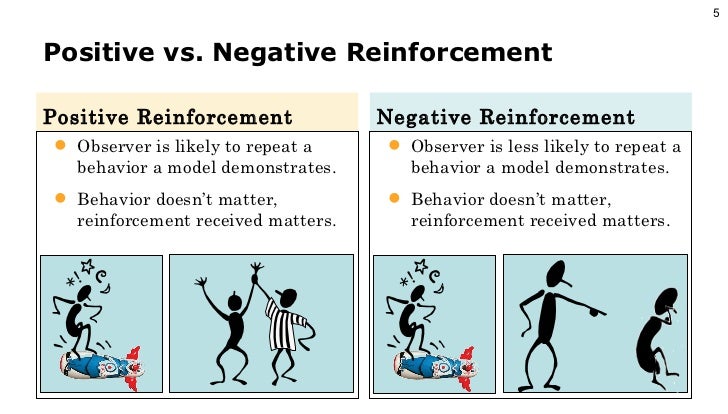 Therefore, the patterns in our lives remain the same.
Therefore, the patterns in our lives remain the same.
Fortunately, there are ways out of these vicious cycles.
What is a Belief System?A belief system is the sum of thoughts you think repeatedly and experience as true – it is the sum of thoughts that have joined with emotions.
You belief system is reflected back to you. You experience it daily, which only reinforces it and leads you to believe that it must be true.
For example, if you believe that “Life is a struggle,” you’ll become alert to any experiences that confirm your belief. As you notice these struggles, your belief becomes even more reinforced. You believe it’s true.
However, if you’re to believe that “Life is full of overcoming,” you’ll begin to notice experiences that confirm this belief, which reinforces it.
Most of our core beliefs begin in our childhood.
A child has one goal to focus on: how to survive. Safety and approval are essential to our survival. So, most of our core beliefs are concerned with both.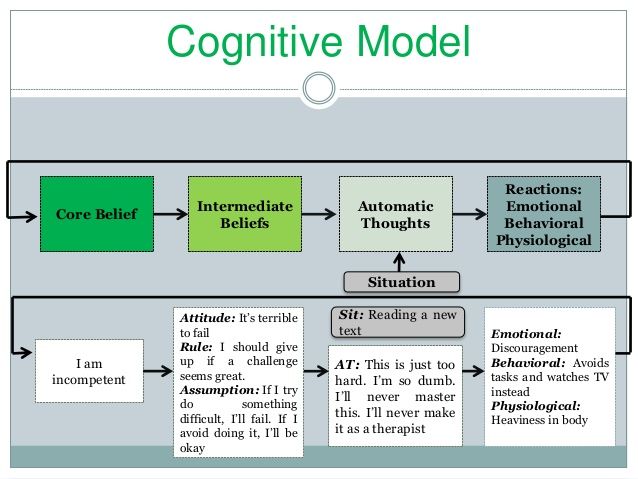
Beliefs also form in adulthood. Traumatic events can form new limiting beliefs at any age. But are easier to spot and thus change.
Our thoughts, feelings, and, actions then become heavily influenced by these subconscious beliefs.
For example, if you have a belief that you are not lovable, then no matter how many people tell you they love you, you’ll filter your experience through this belief system and feel unlovable.
Moreover, this belief acts like a magnet, drawing situations into your daily life that reinforce and “prove” you’re not lovable. You may find yourself getting into unhealthy relationships with people who are not available or people who abandon you, which only reinforces your negative beliefs about yourself.
Related: How To Stop Self-Critical Thoughts Using These Top 10 Techniques
Negative Core Beliefs List- I am a disappointment.
- I am a failure.
- I am a loser.

- I am a mess.
- I am a mistake.
- I am awkward.
- I am bad.
- I am defective.
- I am disposable.
- I am fat.
- I am flawed.
- I am hopeless.
- I am incapable.
- I am inferior.
- I am stupid.
- I am ugly.
- I am unattractive.
- I am uninteresting.
- I am unlovable.
- I am unwanted.
- I am unworthy.
- I am useless.
- I don’t deserve anything.
- No one can be trusted.
- There’s not enough to go around.
- There’s something wrong with me.
Download PDF
3 Views of Life1. Life happens to meThis view comes from a low level of awareness. It leaves you feeling powerless and makes you a victim of life’s circumstances.
2. Life happens by meAt this level of awareness, you begin to recognize that you have an effect on what happens to you through your thoughts and intention.
You begin to realize that your thoughts are in line with what happens in your life, be it negative or positive.
This is when you take responsibility for your thoughts and feelings.
3. Life happens through meAs you grow even more aware, you allow yourself to accept what is, which means that you don’t fight against life.
You begin to recognize that most of your suffering comes from not accepting what comes your way and fighting against the flow of life.
For example, if someone has been diagnosed with chronic pain, rather than fighting the diagnosis and pitying themselves, they can choose to accept what is and direct their energy and time toward taking effective action moving forward.
Related: Top 10 Ways To Stop Wallowing In Self Pity
New Hope for ChangeUp until the 1960s, it was believed that the brain developed during childhood and that by early adulthood its physical structure was permanent.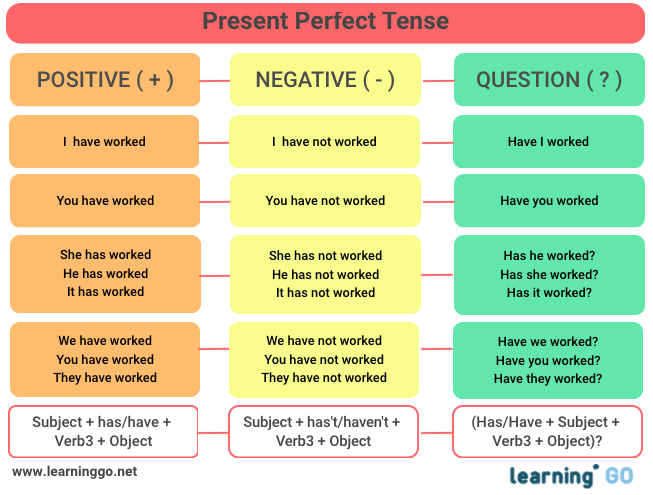
But recent findings in neuroscience and psychology have shown that real change can occur. The brain continues to develop and adjust throughout a person’s lifetime, creating new neural pathways and altering existing ones. This newly discovered ability is called “brain plasticity” or “neuroplasticity.”
According to B. Kolb, Robbin, & Robinson (2003, 1), “Although the brain was once seen as a rather static organ, it is now clear that the organization of brain circuitry is constantly changing as a function of experience.”
This is not to say that change is easy, but to give new hope for change. (*)
Related: Top 10 Signs Of Toxic Shame In A Person (+Best 20 Healing Shame Exercises)
How to Identify Negative Core Beliefs?#1. Find out What You Value MostUnderstanding your personality style and what you value can help you identify your core beliefs.
Personality falls along a continuum of sociotropy and autonomy.
People with a sociotropic personality value interpersonal relationships most. That means they need to feel like, accepted, and desired.
In contrast, people with an autonomous personality value achievement, competence, and independence.
Where we sit on this continuum can shift over time.
What’s your personality style?To determine your personality type, read through the following statements and see how many of them you relate to:
If you are socially oriented:
- Being approved of feels better to you than accomplishing a task.
- You believe it’s more important to be viewed as kind than smart.
- You care about what other people think of you.
- You prioritize friends and family over work.
- Your goals are influenced by others.
- Your self-worth comes from social success.
People with sociotropic personality may experience the following negative beliefs:
- I am awkward.
- I am bad.

- I don’t fit in anywhere
- Nobody values me
- Nobody cares about me
- People who say nice things to me don’t mean them
- I am disposable.
- I am flawed.
- I am hopeless.
- I am inferior.
- I am stupid.
- I am unattractive.
- I am uninteresting.
- I am unlovable.
- I am unwanted.
- I am unworthy.
- No one can be trusted.
If you are achievement oriented:
- Your self-worth comes from your performance and achievements.
- You believe it’s more important to be considered capable or smart than nice or friendly.
- You place more importance on working hard than your social life.
- You thrive on competition.
- You usually don’t make decisions with people’s opinion in mind.
- You enjoy what you’re doing even when no one does it with you.
People with autonomous personality may experience the following negative beliefs.
- I am a disappointment.

- I am a failure.
- I am a loser.
- I am a mess.
- I am a mistake.
- I am incapable.
- I am useless.
- I am helpless
- I am unsuccessful
- I can’t control anything
- I can’t achieve
- I can’t change
- I will fail
- I am defective.
- I always get it wrong
- Everything I do goes wrong
- There’s something wrong with me.
Patterns in your life are a great way to uncover your belief systems.
For example, if you’ve always dated the same type of man, then it’s easy to figure out the qualities that seem to attract you to these men and its underlying beliefs.
Try to write down the qualities your former partners had. It’s not a coincidence that they have similarities. It’s your beliefs that determine whom you attract into your life.
Even if you go to great lengths to make sure your partner is different, you may later discover that he has the same qualities your former partners have, or you may not feel that “chemistry” with him.
Related: Inner Teenager Healing: 14 Proven Exercises to Heal Your Inner Teenager
#3. Notice When You Feel Like a ChildAnother way to uncover limiting beliefs is when you feel like a child, overwhelmed by something an adult should be able to handle.
For example, you may find yourself caught in a panic attack because a friend is upset with you. You fear he may abandon you, and despite consciously reasoning that people can get upset without abandoning you, you can’t seem to calm down.
When you’re caught in a strong emotion that doesn’t seem reasonable, then this is a sign a subconscious belief system is activated.
Related: Best 15 Inner Child Exercises: How To Connect With Your Inner Child (& Heal Your Childhood Wounds)
#4. Notice When You React Rather Than RespondSimilar to the previous item, when your behavior comes from a subconscious belief, you react without conscious thinking rather than responding.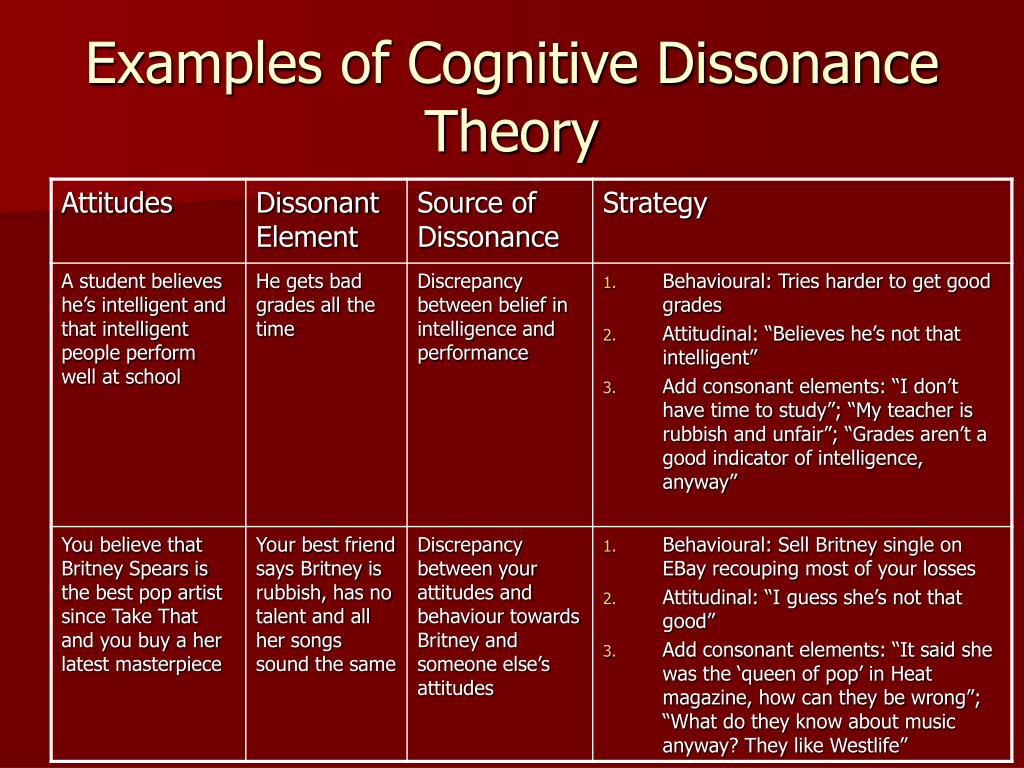
Responding to a situation comes from your adult beliefs and conscious thinking. Reacting, on the other hand, comes from childhood beliefs and thinking. It’s as though you have no control over your reaction.
If you find yourself unable to stop the loop of your judgmental thoughts or calm down your overwhelming emotions and think about how you should respond, then that’s a sign of limiting beliefs.
#5. Consider These Common Limiting BeliefsThe main reason why we hold onto old beliefs is that they helped us. Originally, they were a solution to a problem we faced.
For example, if one of your old beliefs is “I am not enough,” then as a child, you received the message that you will need to do more to be loved and accepted. Although it’s a negative belief, given your circumstances, it helped you get acceptance from your primary caretakers by pushing you to do more.
Since most of our beliefs are formed during childhood, they aim to help us survive by making sure we are (1) loved and accepted, and (2) safe and secure.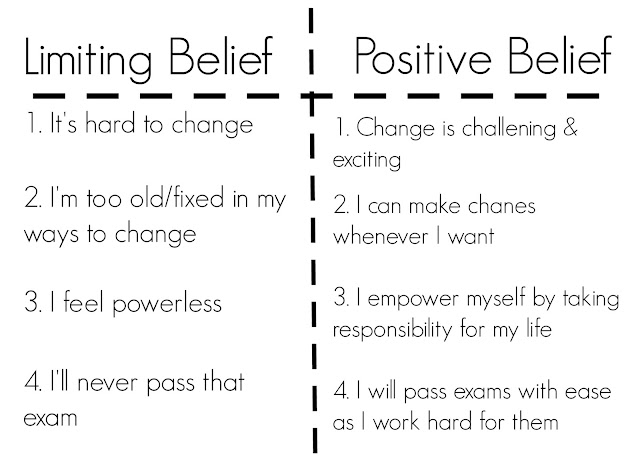
The following are common limiting beliefs:
- “There’s something wrong with me”
- “I’m not enough”
- “I have to…I should…I can’t…I don’t want to”
- “I need to be in control”
- “I’m alone…I don’t belong”
- “I’m not worthy”
- “I can’t do it right”
- “I’m powerless”
- “Life isn’t fair”
Related: Inner Child Wounds Test (+4 Attachment Imagery Exercises To Heal Inner Child Wounds)
#6. Use Feedback From OthersWhen others you trust to point out or complain about a trait of yours instead of defending yourself, consider if you can use that feedback to identify your limiting beliefs.
8 Tips On How To Challenge Negative Core BeliefsChanging your old beliefs isn’t as hard as it sounds.
In fact, you’re constantly transforming and upgrading your beliefs since you were a child.
The key is the awareness that your old belief is not working for you anymore and openness to new ideas and beliefs.
Sometimes, we don’t change until we feel like “I’ve had enough.”
Anger can be an empowering emotion to help you change your life. Since beliefs are usually created in times of high emotions, the best way to change them is using high emotions, such as anger.
It’s not anger that will change your old beliefs. It’s the resolve within you that leaves no room for debate.
#2. Acknowledge Your Role In What Happens to YouYou may like seeing yourself as the victim because that relieves you of responsibility.
But you are 100% responsible for the story you tell yourself about what happened.
Even if it looks like it’s someone else’s fault, you alone are giving meaning to what happens in your life. It is always about you and your perceptions.
The responsibility for changing our beliefs comes as we age, as we become more conscious and realize that some aspects of our lives aren’t working well.
Victimization has a crippling effect. It wasn’t your fault that you were abused when you were young. The one who victimizes is always at fault.
Being victimized is not a choice, but being a victim is a choice.
Being victimized doesn’t make you a victim. The action of being victimized is not the same as the way of thinking of yourself as a victim.
In fact, “I’m a victim” consciousness is what continues to perpetuate the victimization and contributes to your not letting go of your suffering.
Related: Best Edith Eger Quotes (“The Gift”): 12 Invaluable Lessons to Set Yourself Free
#3. Use MindfulnessThe more mindful you become, the more you can catch yourself when a limiting belief is triggered and change it.
For instance, if you have a belief that you are “powerless,” notice each time you have that old habitual thinking.
Take a deep breath to anchor your attention in the present moment.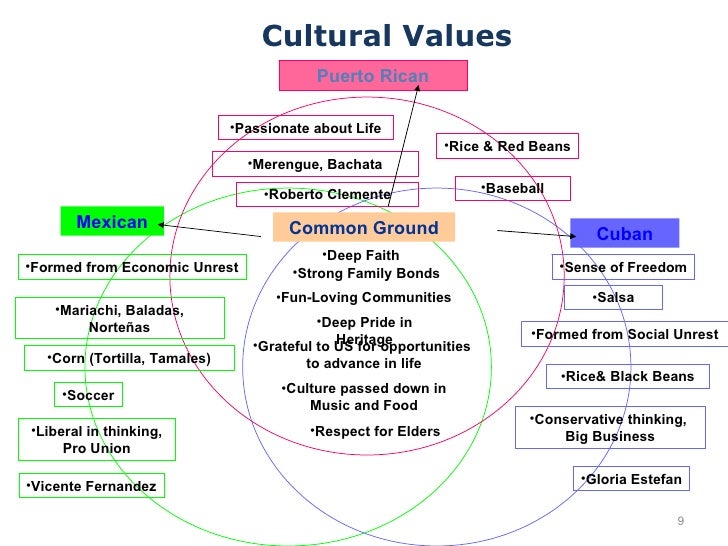
Consciously, bring to mind memories of times you felt powerful and in control and let those positive emotions fill your body. Use these as evidence for your powerfulness and affirm yourself by saying something like, “I am powerful, I am in control.”
Do this whenever you encounter you notice your old habitual thinking until you convince your mind that you are indeed in control. Shift your attention from what you don’t want to what you want.
Continue Reading Best 10 Mental Health Coloring Books
#4. Challenge Your Limiting BeliefsYour beliefs create your experiences. But these beliefs are not as accurate or true as you think they are.
What is true are your beliefs about their being true.
This is good news because it means that to change your beliefs, all you need to do is to change the story you tell yourself about them being true and unchangeable.
Try ThisOn a piece of paper, try writing down some of your limiting beliefs.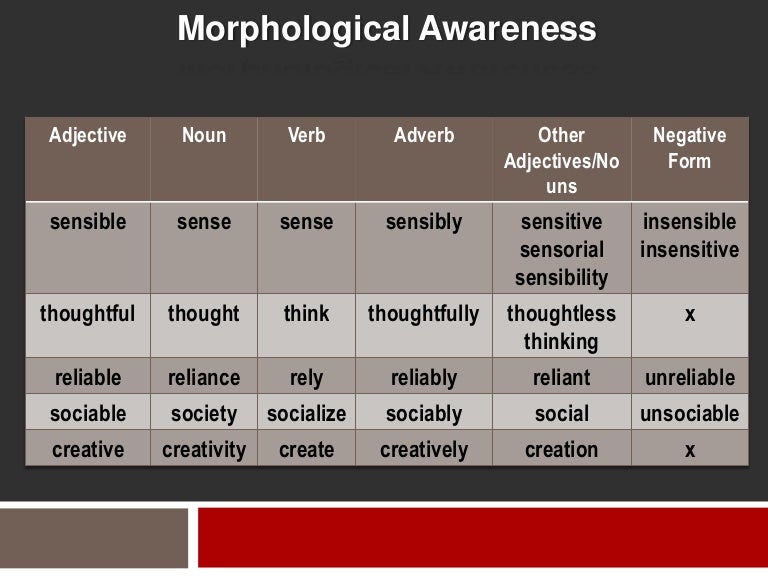 for each belief, write down why you think it’s true, then answer the following questions:
for each belief, write down why you think it’s true, then answer the following questions:
· Do I have experiences that would contradict my beliefs in any way?
· What evidence do I have that what I believe is actually true?
· Am I falling into a thinking trap (e.g., catastrophizing or all-or-nothing treatment)?
· What would I tell a friend if he/she had the same thought?
· Am I confusing a belief with a fact?
· Am I basing my conclusion mostly on my feelings or on the true evidence?
#5. Use Gratitude to Let Go of Your Old BeliefsThat’s right, be grateful that your limiting beliefs were trying to help you survive as best as you knew how to.
That might sound counterintuitive but it’s easier to let go of your old beliefs and cultivate new helpful ones when you feel grateful.
That doesn’t mean you like these old beliefs or want them to remain in your subconscious. It just means that you are at peace with the fact that they were there, trying to help you survive, and that you are ready now to upgrade these beliefs.
Gratitude is self-fulfilling, the more grateful you are, the more things you have in your life to be grateful for.
In fact, our energies attract like. The more positive you are, the more positive things you attract into your life.
Try This:Write down your old, limiting beliefs and for each belief, write a gratitude note detailing how it has helped you in the past.
Express your gratitude and your intention to release it now that it has served its purpose.
Related: Daily Gratitude Ideas: 10 Ways to Practice Gratitude Every Day
#6. Change Your StoryIn order to change our old beliefs, we need to look at what actually happened and change the story we created around them.
For example, imagine your parents left for work and as a child, you perceived this situation as “they are leaving me alone.” You were too young back then to understand why they needed to leave, even if they explained where they were going and you had a babysitter to look after you.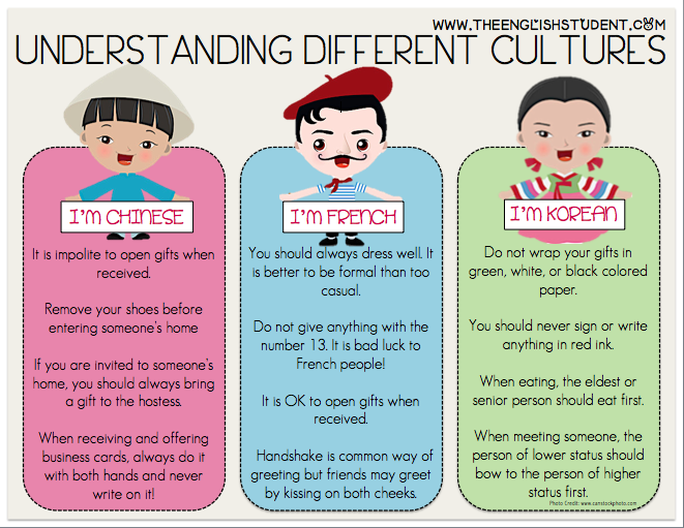
Your thoughts and feelings of abandonment become locked in and as you grow up it might cause issues with your other relationships.
To change that belief, you need to change the story to an adult viewpoint. Rather than telling yourself “My parents abandoned me,” you can say now, “They left for work and were back at the end of the day.” This makes it about them, not about you. It states your parents’ action in terms of a fact, rather than as a judgment made by the child.
Try ThisStart looking at the events of your life from an objective viewpoint. Answer the following questions:
- What actually happened?
- How did this belief affect your life?
- Was it against you or was it actually something the other person did for himself?
- What would a more factual version of the story sound like?
When thinking about forgiveness, most people think only about forgiving other people.
However, forgiveness is incomplete without self-forgiveness.
If you find it hard to forgive and let go, consider revising what forgiveness means for you.
On Oprah Winfrey’s television show, a guest defined forgiveness as: letting go of the hope that the past could be different.
Defined in this way, forgiveness doesn’t mean that you condone or accept what happened.
Rather, it means you no longer carry painful emotions and the negative thinking related to what happened. It’s not the past that causes you suffering, it’s the thoughts and emotions related to that past that are causing you suffering.
How do you really forgive? Check out this article to help you forgive and free yourself from resentment and bitterness?
#8. Harness the Healing Powers of SpiritualitySpirituality in the form of prayer, positive affirmations, inspiring mantras, etc. can be a powerful change agent, according to a growing number of studies. (*)
(*)
Spirituality helps you connect with your inner self and draw positive energy from your Higher source – be it God, the divine, the Spirit, Mother Nature, the Universe.
What does this have to do with changing limiting beliefs?
Spirituality helps you move beyond your resentment and empowers you to take action to change your current situation.
For instance, you can pray for those who harmed you in the past to help you forgive them and let go of resentment.
The Alcoholics Anonymous program uses the Serenity Prayer, “God, grant me the serenity to accept the things I cannot change, The courage to change the things I can, And the wisdom to know the difference.”
The Alcoholics Anonymous program also teaches a 21-day prayer process, in which for 21 days you pray for the person you have a strained relationship with, or hold a grudge against.
Pray that they be blessed and all good comes to them, keeping it general without listing specific outcomes.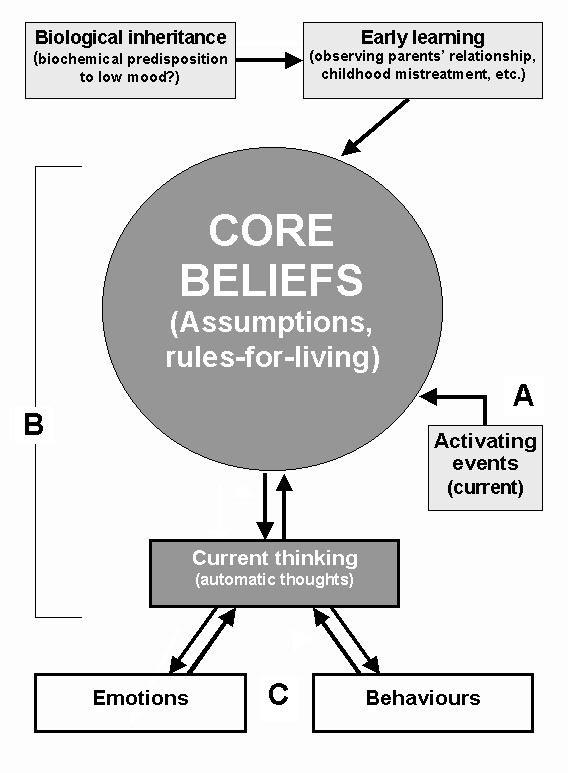
Another very powerful spiritual practice is the Hawaiian practice of Ho’noponopono.
This is a practice of reconciliation and forgiveness: the term Ho’noponopono means, “to make right.”
The basis of this practice is that you have a role in everything that happens in your life. By acknowledging this, you empower yourself to take action and change your life.
To use this practice, repeat these four phrases:
(1) I’m sorry. (2) Please forgive me. (3) Thank you. (4) I love you.
References
- Portions of this article were adapted from the book Your Life’s Calling: Getting Unstuck and Fulfilling Your Life Lessons, © 2014 by Nancy Canning. All rights reserved.
- Frontiers | The Effect of Negative Feedback on Positive Beliefs in Self-Deception | Psychology (frontiersin.org)
- Negativity-bias in forming beliefs about own abilities | Scientific Reports (nature.com)
- Dimensions of Negative Thinking and the Relations with Symptoms of Depression and Anxiety in Children and Adolescents – PMC (nih.
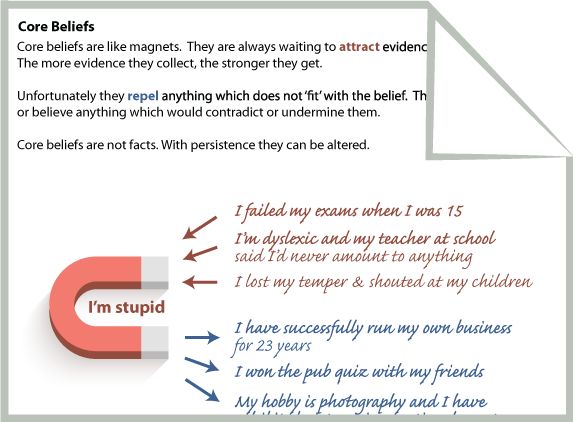 gov)
gov) - Summary of positive and negative beliefs of study subjects. | Download Scientific Diagram (researchgate.net)
- Reframing Self-Limiting Beliefs – OpenLearn – Open University
- Negative Bias: Why We’re Hardwired for Negativity (verywellmind.com)
- Identifying Negative Automatic Thought Patterns | Stress & Development Lab (harvard.edu)
- Negative Thoughts: How to Stop Them (verywellmind.com)
Affordable
Online Therapy: Do You Need Professional Help?Visit Online-Therapy.com Today
Talk to Someone Now
Can’t Afford Therapy?
Our Worksheets Will Help Support Your Mental Health
Access Our FREE Library Resources
12 false beliefs that prevent us from working effectively
Irina Balmanzhi
We often rely on deliberately erroneous beliefs and prejudices rooted in our thinking. Unrecognized, they confuse us and force us to act and make decisions based on false conclusions and generalizations.
If you train your brain to accept erroneous attitudes as true facts, you will be able to develop new behavioral and emotional responses that will be more consistent with your goals. nine0004
Let's take a closer look at false beliefs common in professional life so that you can easily recognize them and resist them when they try to take over your mind.
The Power of Emotional Intelligence
Everyone should love me
- Typical statements: “I don’t want to upset him”, “It doesn’t matter what I want, what matters is what you want”, “I don’t think I can handle it.”
"Everyone I work with must always admire and love me" . Such a belief will negatively affect your ability to tell the truth. As you expect constant approval from those around you, you will find yourself compelled to please and encourage them in every way.
Most of the time there is nothing wrong with that, but at some point you realize that in order to please this time, you need to give up your own goals and values. You may be seen as indecisive because it's hard to stand your ground and be nice to everyone all the time.
You may be seen as indecisive because it's hard to stand your ground and be nice to everyone all the time.
How often do you sacrifice your interests and principles to please other people? Source
If you are in a leadership position, counting on universal approval is completely utopian. From time to time, you will still have to make unpopular decisions.
I have no room for error
- Typical statements: “I did everything exactly as I was told”, “Everything works fine, why change something?”.
"I must be competent, adequate and successful in all my undertakings" . At first glance, this is an excellent goal setting for any employee. But if you dig deeper, you will find that it leads to rejection and negative emotional reactions to any change. Makes you hide your mistakes. It makes it difficult to seek help and advice. And it makes them overly vulnerable to any criticism.
I have to (—on) re-educate them
- Typical statements: “You should think not only about yourself”, “Don’t you see that all this is because of you?”, “I told you (- a)!".
 nine0018
nine0018
"If someone behaves dishonestly or defiantly, it is my sacred duty to correct them" . The problem is that "dishonest" and "defiant behavior" are encountered at every step.
By holding fast to your belief, you risk spending your days trying to change those around you instead of working. There will be neither time nor energy left to achieve your goals. And chances are high that after spending a lot of time and energy fighting windmills, you will experience disappointment. And now you are already insulting and humiliating those whom you so wanted to make better. nine0004
Among the "candidates for re-education" may be your clients, and this will certainly affect the success of your work.
We are all going to die!
- Typical statements: “Lord, not this! What to do now?!”, “The worst thing that could happen”, “I can never cope with this.”
“If I am greatly upset, treated unfairly, or denied something, it seems to me that the sky falls to the ground and life ends.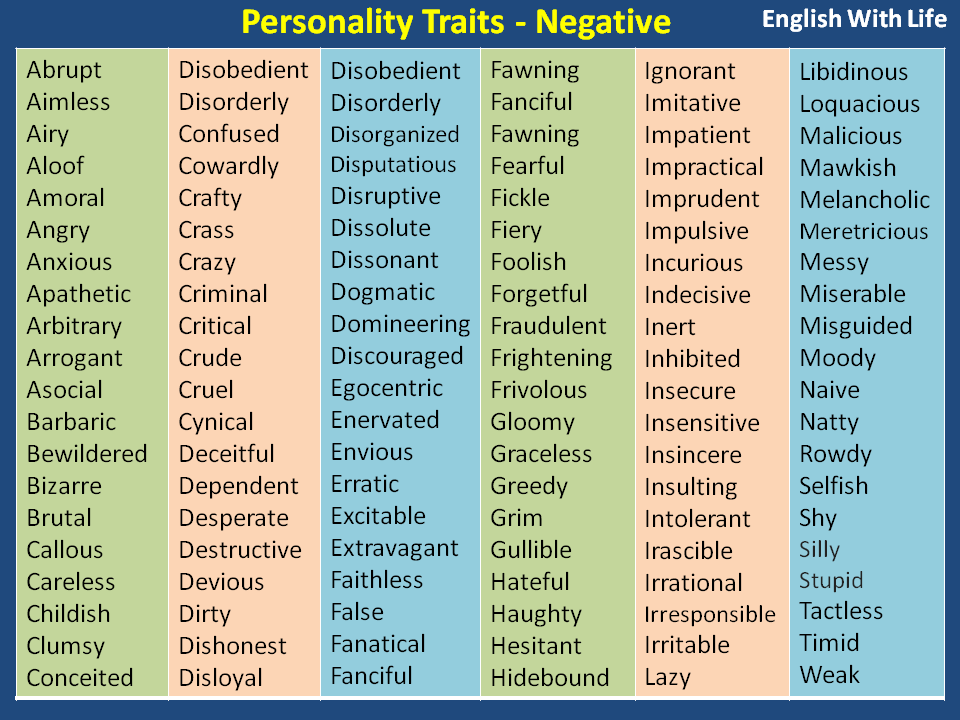 ” nine0022
” nine0022
Literally every day we face more or less unfair treatment. Your resume for the job was rejected. You have been forced into a project that you don't want to work on. Your immediate supervisor is more than to you, is located to a colleague. If you take everything too personally, you can live your whole life in the state of "What a nightmare!".
They are to blame for everything
- Typical statements: “What can I do?”, “I have to put up with these terrible people/circumstances”, “Why do I need all this?”. nine0018
"All my experiences are caused by external causes, which I practically do not influence" . At work, they demand the impossible; the boss is a cannibal; the department is disbanded and transferred; The computer is always crashing. This list is endless.
As long as you believe that the source of your emotional unhappiness is outside, the world will continually supply you with reasons to feel cornered.
Anxiety, fear and anxiety will save me from misfortune
- Typical statements: “I am so worried…”, “I can’t think of anything but…”, “I am very worried…”
"If something seems dangerous, you can't just ignore it and not worry" .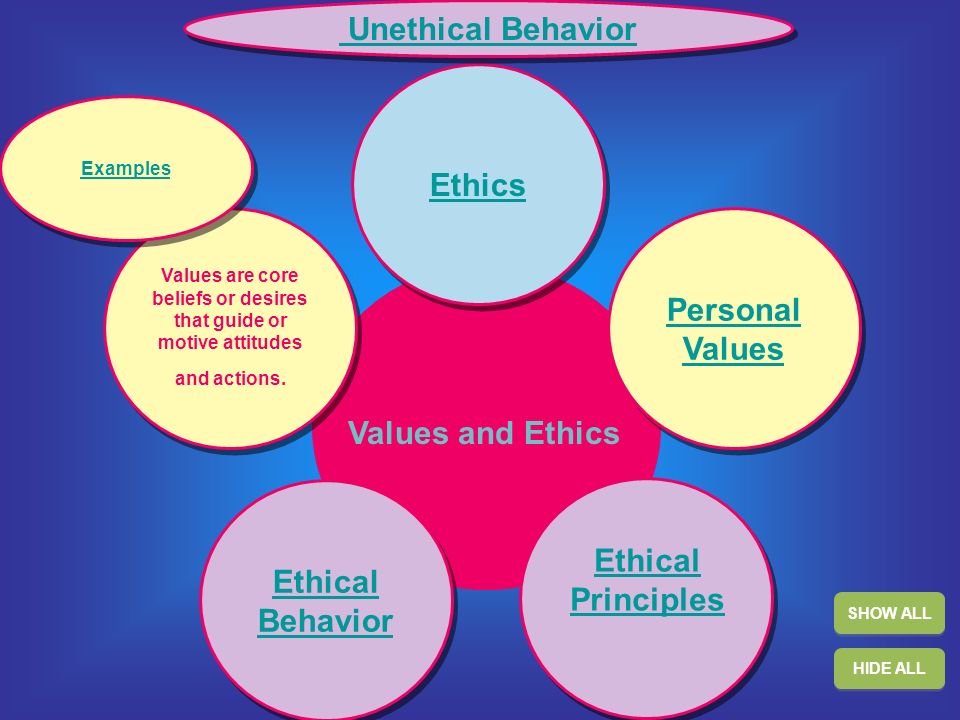 Some, for example, are frightened by the need to speak in front of an audience. It is impossible to allow yourself to calm down and relax with such a conviction.
Some, for example, are frightened by the need to speak in front of an audience. It is impossible to allow yourself to calm down and relax with such a conviction.
Stop winding yourself up over every little thing. Retrieved from
Note that excessive worry does not bring any benefit, but only aggravates your condition and hurts your business. nine0004
It’s easier not to get involved
- Typical statements: “Well, I’ll wait and see what happens…”, “I have no idea what they have plans for me”, “What can I do?”.
"It's easier not to get involved with difficult tasks and not take any responsibility than to disentangle yourself later" . It’s really easier this way, but this belief will lead you into the chronic position of the victim. You will not just begin to blame others for all your misfortunes, but you will be doomed to a feeling of helplessness and inability to change at least something. nine0004
This belief will eventually require you to renounce your responsibility for your own life. Let's say for the next promotion you need to take additional training. Or, to get a more responsible project, you have to devote more time to work.
Let's say for the next promotion you need to take additional training. Or, to get a more responsible project, you have to devote more time to work.
In both situations, if you follow the belief "it's easier not to get involved", you will have a chance of success only if luck turns to face you. But you are not ready to give your whole life and future to chance, are you? nine0004
The past determines the present
- Typical statements: “I remember how they did this to me…”, “Let me tell you how it was”, “I don’t know. I already tried (s) - and nothing happened. ”
“My past is very important, and what once greatly influenced my life should constantly determine my feelings and behavior in the present” . Such an installation will definitely not bring you to good.
Basically, it's a statement that if you were denied a promotion twenty-five years ago, you should still worry about it. This frustration has a permanent effect on your way of thinking. nine0004
nine0004
Let's take another example. Let's say you held a managerial position, you were very proud of yourself, but suddenly you were laid off. After that, you never managed to take a similar position again. If the past dominates you, you risk never recovering from this blow.
Nothing is impossible
- Typical statements: “We just need to put in more effort”, “I must have tried hard”, “I need to fix everything.”
"After all, people and situations are not as bad as they seem - I just have to try." nine0022
By and large, this belief assumes that you have answers to all questions in the world - even unanswerable ones. And if suddenly there is no answer or solution to the problem, you blame yourself for not trying hard.
By adhering to the “impossible is possible” mindset, as a leader, you will take responsibility for the failure of each subordinate. This conviction is akin to a sentence to be eternally guilty for everyone. In addition, it prevents you from becoming part of the team: after all, you know everything and you can do everything yourself! nine0004
Life is a race
- Typical statements: “I can't believe that Sergei got promoted.
 How did he deserve this?", "I have to bypass Natalya Petrovna", "It doesn't matter how much they raise my salary, the main thing is that it should be more than Kirill's."
How did he deserve this?", "I have to bypass Natalya Petrovna", "It doesn't matter how much they raise my salary, the main thing is that it should be more than Kirill's."
"My value is shown only in competitive struggle." Society loves winners. From childhood, we are taught to compete with others. We obsessively strive to be the best student first or to score the most goals in the basket, then we need the most expensive and exclusive dress or the biggest bonus at the end of the year. nine0004
The problem is that the mindset of the eternal racer is in direct conflict with the spirit of teamwork and cooperation that many companies seek to nurture in the team.
When competing with your own colleagues, it is difficult to share information, ideas or resources if someone else can use them for their own benefit.
In addition, competition implies the desire to win; in other words, if you win, someone must lose. Competing means constantly trying to figure out who is better and who is worse. nine0004
nine0004
Everyone creates problems for me
- Typical statements: “If Sasha stopped… my life would immediately get better”, “Svetlana Mikhailovna, it’s because of you I can’t…”, “We would hire normal people in this company…”
"The source of all my problems is people and circumstances." If only dupes didn't surround me; if I got a job in a normal company; if they knew how to work normally; if I were appreciated according to merit; if only...
With the conviction that others are to blame for all your troubles and misfortunes, it is, of course, convenient to live. By clinging to it, we can afford not to take responsibility for anything in our lives. But it constantly hinders our personal growth. We may never know that we ourselves are the main source of problems. nine0004
Everything is bad
- Typical statements: "Nothing good will come of this", "He will never recover from this blow."
"Some events or incidents are inherently terrible.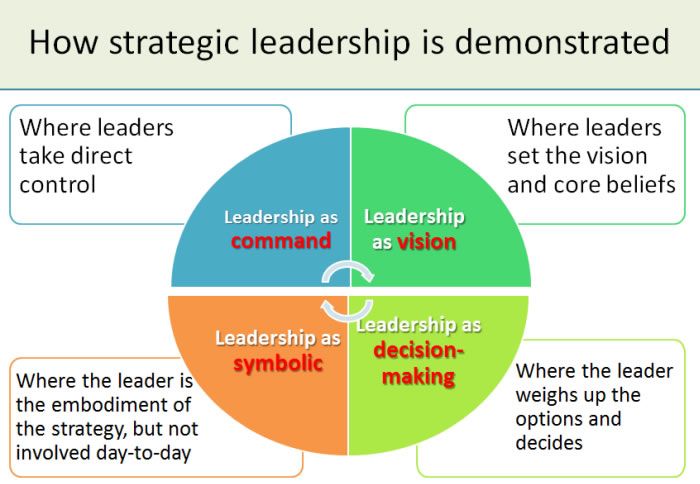 " This belief, taken as an absolute, means that by definition nothing good or useful happens to you.
" This belief, taken as an absolute, means that by definition nothing good or useful happens to you.
For example, when you lose your job, you see only the negative side of things. However, there is nothing uniquely good or bad in the world. Even being fired has its advantages: if no other force majeure happens, you can finally get enough sleep and have a peaceful breakfast in the morning. nine0004
Even in the most unpleasant situation, you can find advantages. Source
Negative beliefs prevent you from looking at things and situations objectively. This means that it is difficult for you to solve problems or cope with changes, in which, it should be noted, in addition to dark sides, there are both opportunities and prospects.
Based on the book "The Power of Emotional Intelligence"
Post cover from here0001 Greetings, dear friends! Surely you have heard that a person creates his own reality. But why, then, is the life of most of us not at all like a fairy tale? After all, it is unlikely that we ourselves wish ourselves disappointments, failures, lack of money and other negative scenarios. Limiting beliefs are to blame. The word “belief” itself means the quality of the worldview, which gives a person confidence in his own views, knowledge and assessment of reality. In simple words, this is what we are sure of, our firm view of something. As a rule, having some kind of conviction, we do not seek to subject it to analysis and logic, since it came to us from people significant to us or appeared in the process of important personal experience. Conventionally, if we have heard from our parents from the cradle that honest money comes only with sweat and blood, this conviction will accompany us all our lives, unless we make a strong-willed decision to change something in ourselves. A little later we will look at many similar examples with you, which can be called limiting beliefs. nine0027 Why limiting? Because they prevent us from creating what we want in our lives. They limit our thinking, make it narrow, put it in a box. A person with the attitude shown in the example above will think that all honest people are necessarily hard workers with a beggarly wage, and those who live in abundance will certainly steal. And perhaps such a person will wish wealth for himself with his mind, but at the same time his subconscious will begin to flash the red light “money = evil”. nine0004 Who wants to be bad? Thus, a negative belief will not allow you to have more earnings, count on the best, and develop financially. We hasten to reassure you. Every person has limits. The only difference is that someone stays in his cocoon all his life and does not know what could be different, while someone makes efforts to change and make his life better. The choice is always yours. nine0028 Here is a far from complete list of all kinds of negative beliefs in our heads that deprive us of energy and create the illusion of helplessness. To make it clearer, we divided them into spheres. This is the main category of beliefs that prevent us from living fully. Most common of them: One could write an entire dissertation about negative financial attitudes and their impact on our lives. Here we restrict ourselves to the list of the most common beliefs: Attitudes that do not allow building harmonious relationships with a partner: Attitudes hindering professional development: We recommend reading our article 6 principles on how to become successful. This area also has its own horror stories: There are many more similar negative attitudes. For example, about friendship: About the hobby: About rest: About life, people around: Learn about the "8 Negative Things You Should Stop Saying to Yourself" Some of your limiting beliefs you may have already discovered thanks to the above list. nine0004 We propose to go further and “get” even more useless husks from your subconscious. We will be doing an exercise with you called “explanatory note”. It will require a piece of paper, a pen and 30 minutes of your time. Order: This technique can be used for a wide variety of areas and issues. For example: “Why don’t I want to get married” (for women who allegedly cannot get married in any way). The answers may surprise you . Someone will find that he is afraid of responsibility, someone is convinced that all men are the same, that they change and control, but you do not want to experience all this. And so on. Now you have a whole list of everything that limits you and does not allow you to achieve what you want. Look carefully at your notes and ask the following questions for each statement: “ Who told me this? ”, “ Why do I think so? ” and the like. In most cases, your mind will not even be able to rationally explain the nature of your negative conclusions. And if something comes to mind, they say, this was the case with all my girlfriends / friends, these are statistics, then be sure that this is pure self-deception. Over time, the brain will get used to these formulations, and you will feel how the surrounding reality begins to adapt to your new views. Let's continue the already taken example about finances, namely: “In order to earn many times more, I need to work many times more”. This is a limiting setting, and we will need to replace it with a new, positive one. For example: "My level of earnings does not depend on how much time I spend on work." Remember that the new installation takes some getting used to. It's like just bought shoes that are a little too narrow for your feet. They will have to be broken in, put on as often as possible. nine0022 Write a positive belief on a piece of paper and hang it in a conspicuous place so that each time your eyes rest on a new, unusual phrase for you. Return to this belief every day, pronounce it as an affirmation, that is, as a positive statement for the right psychological attitude. This way you can work with any limit settings. Here are some examples: We have discussed what limiting beliefs are and found out how to remove them from your life.
Concept
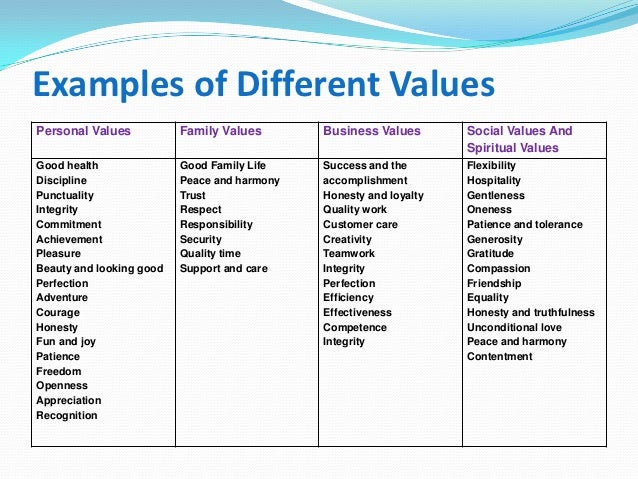
Examples of Limiting Beliefs
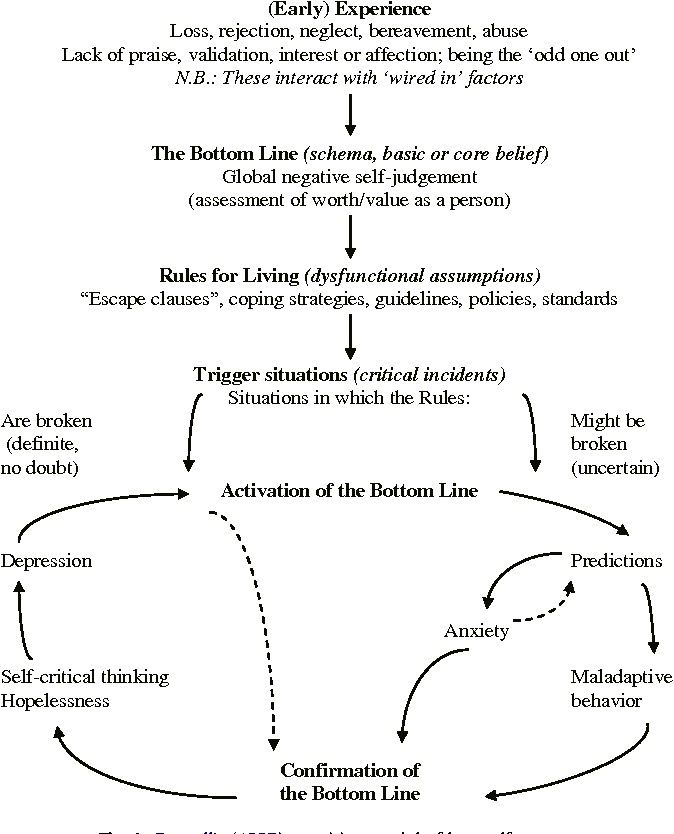 It is likely that many of you will recognize your thoughts among these examples.
It is likely that many of you will recognize your thoughts among these examples. To myself

About money

About love and relationships
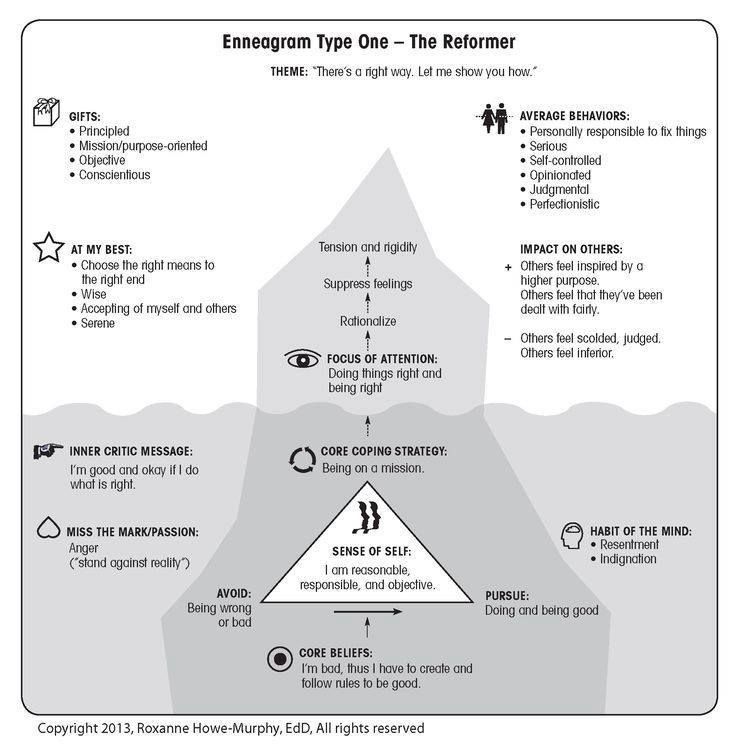
About work and career
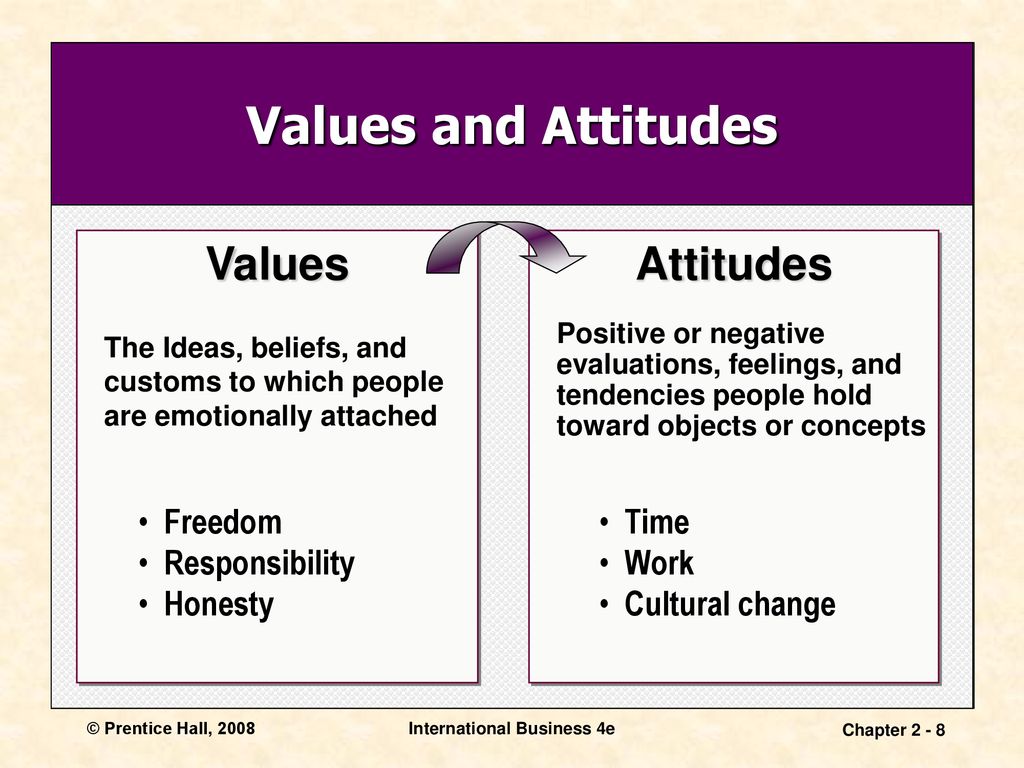
About health

Other beliefs
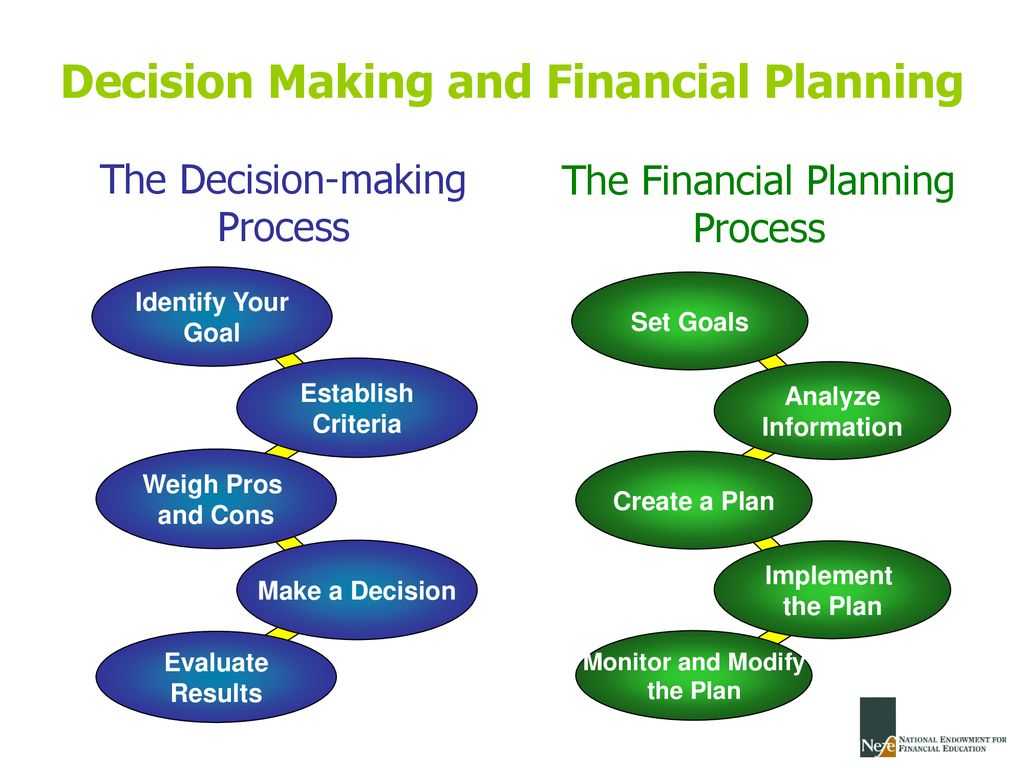
How to Reveal Your Negative Attitudes

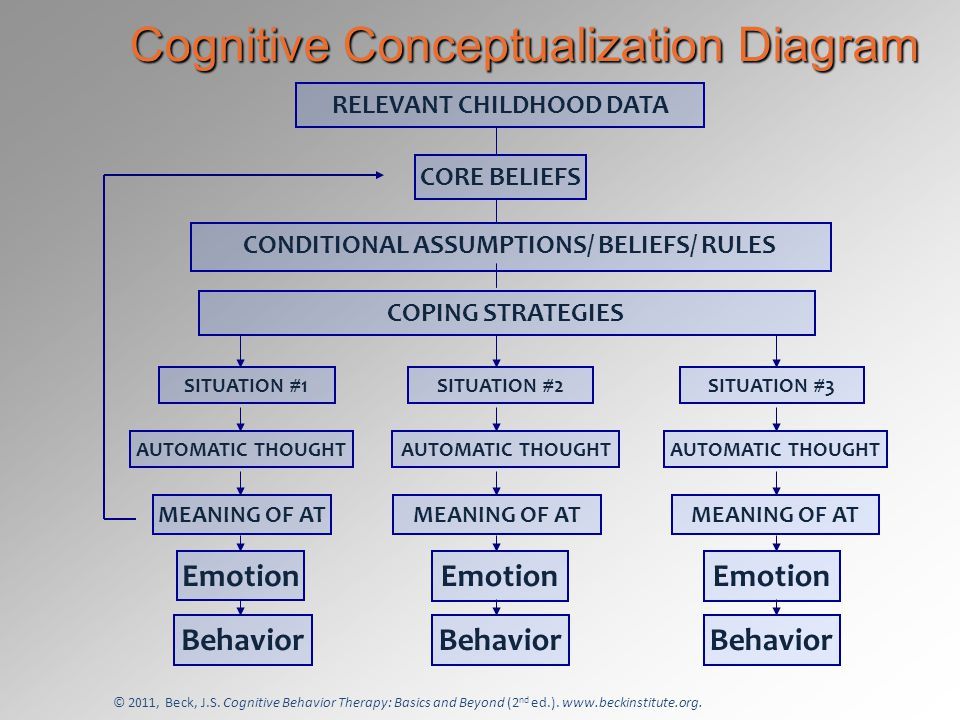
How to work out limiting beliefs new neural connections to replace the old ones. This can be compared to a promotion in a store, when they offer to exchange old equipment for a new one at a discount.
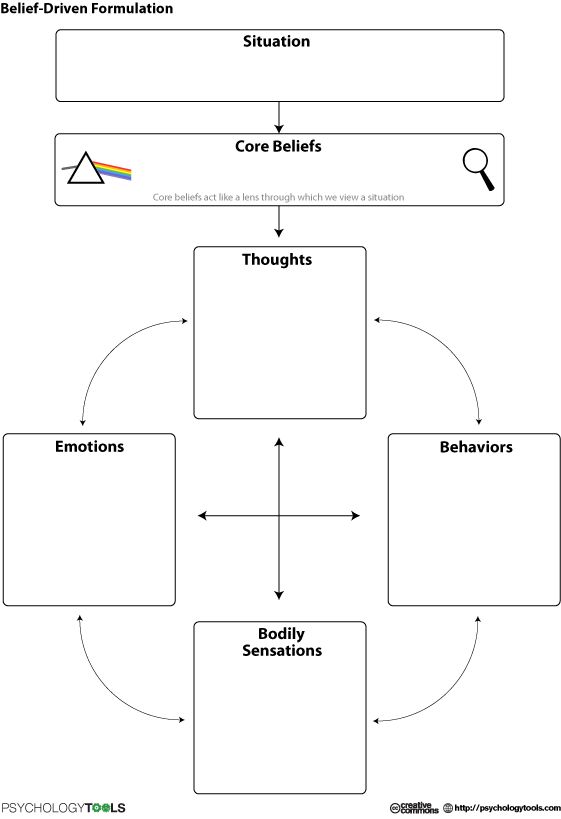 So we will replace our previous negative beliefs with new positive ones. nine0004
So we will replace our previous negative beliefs with new positive ones. nine0004 
Conclusion



